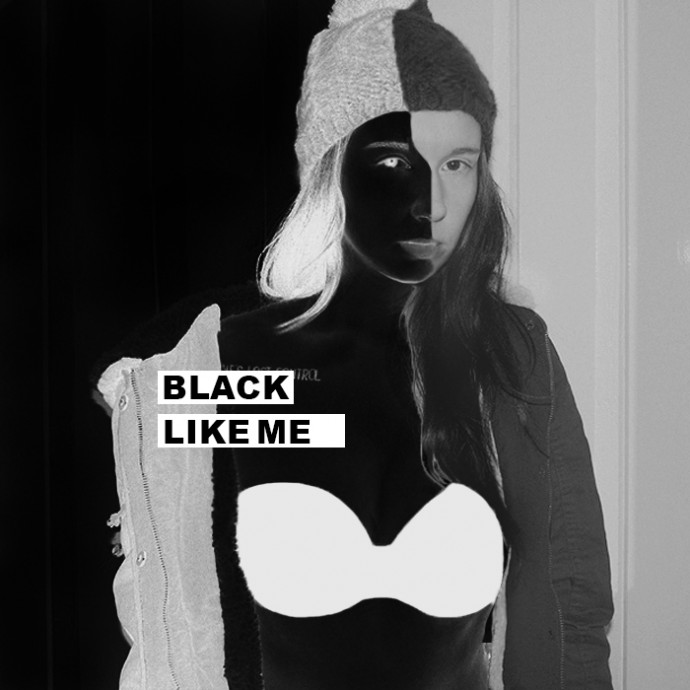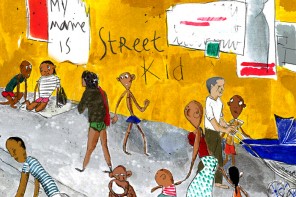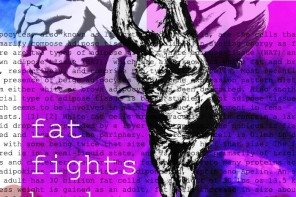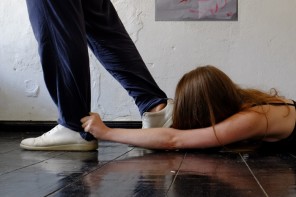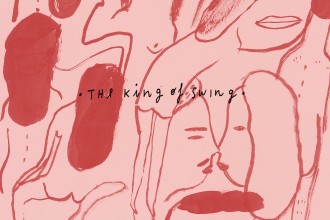“It doesn’t matter if you feel like a zebra, if you are a hippo, people can tell and you will only be happy as a hippo.” A student tells us how he, in his teenage days, became a black person, felt proud of the Afro heritage and how in the end, he was left with confusion.
Please don’t get it wrong. I was not the white guy in the wrong neighborhood wanting to play the rapper or gangsta’ game. Or any other lousy cliché of that kind. My identity doubts were beyond me, it is a national issue.
I studied in a private school in South America. In a country with 37% Whites, 10% Blacks, 3% Indigenous. The rest of the population is considered mestizos. This is a country where these ethnic groups are still very divided geographically, a country where these ethnic groups are also divided socially and economically. This means that in my private school, where you basically just need the money to get in, it was mainly populated by whites and mestizos.
And there I was, among them all, without any problem until high school, where things get tougher, where everybody bullies everybody, where names are given, a jungle, the wild west, an island of a lost innocence governed by kids, kids making rules, unwritten rules as valid as the adult ones, a cruel world where everybody fights to survive. And was by then when someone pointed it out: I had the darkest skin in my class. It was true. From my 32 classmates, boys and girls, I was the darkest one. Not so different from other mestizos but still darker. So the name came. By 12 years old everybody had a nickname meant to offend as much as possible. Mine started to be “Black”. Suddenly I became the black kid in the school.
Yes, it bothered me. Not only because I live in a racist country where these matters are defined by very old colonial racial logic, but also because any non whites (a lot of mestizos consider themselves as whites) are viewed as thieves, uneducated people, or savages (the word “Negro” (black) is usually used to describe someone as an idiot, and “Indio” (a native) as a reckless savage).
Yet, it also bothered me because it made a gap between me and them; it made me different from them, and over all, because it was meant to be offensive. So I fought it by saying that I was not black, and comparing my skin tone with the others to prove to them that I was not as different from them as they stated.
By that time my city was not very multicultural. The Black people in my country were settled mainly in the Pacific Coast, far away. After some years they started to move to the capital, where I lived. But before, in my school years, the population was quite homogeneous, so it was not easy to compare myself with an actual black person. So, after months of school and thinking, I realized that I actually was not racist, that the nickname bothered me just because it was a way to marginalize me. I decided to stop being upset by this nickname, and started to consider that maybe, I was black after all. I mean, I was darker than the other ones, so why not?
I embraced it. I was the Black guy of the private school for months and by then I was feeling like it and somehow proud of it. My classmates got a little confused by my behavior when they tried to tease me calling me Black and I stopped reacting upset or angry. They didn’t understand why. I said to them that it was all right, that I was not going to feel offended by the truth: that I was Black. Then they tried to relate me with the typical negative and racist characteristics attributed to Black people. I argued back. They heard a lot of things from me and were not impressed. Until I said another cliché statement about Black people that made a change, as if the joke was on them. I said, “Yes, I know I am Black, and I feel fine with it, anyway, you all know that we, the Black people, have the biggest dicks of all the people.”
That statement touched them beyond their needs of bullying or of seeming tougher than anybody else. Maybe an early macho pride, or maybe they realized that by calling me this and taking that cliché as a definitive truth they were basically recognizing me as the most “given” in the school. They stopped teasing me, or calling me Black to offend me. And even more than that, saying such a thing had a consequence that I definitely didn’t expect.
The other mestizo classmates, the darkest ones, the ones with which I compared myself before to demonstrate that the tone difference was not so big to call us as different, they joined me. All of a sudden there were more Black kids in the school. Not new students, but the same people that were there since the beginning of high school. They started to call themselves Black. They just turned Black, as Black as me. And during that stage of life where everybody searches for their identity, through music, clothing and attitudes, ours was already defined. We were Black. Without even having a Black parent or a Black relative. Now that I think about it, maybe we didn’t even know any real Black person at that time. But we carried on, and it went beyond the stupid dick thing. Suddenly we were identifying ourselves with Martin Luther King Jr., Malcolm X, even the Black Panthers.
Funny things happened after we left high school. I went for the first time on a trip by my own. I went to New York. A friend of mine from India picked me up with a friend from my city. She said to him and pointed at me while he was driving from the airport to the city: He thinks that he is Black. I said: well, I am. He looked at me and laughed. After two hours in the streets of New York I got it, with certain pain and a lot of confusion. I was not Black at all. Not my face, not my skin, not my complexion, anything. I spent a lot of time identifying myself with people I had nothing in common with.
So what was I? How did I become Black in the first place?
That weird period taught me a big lesson about how complex identity issues can be and how a country’s history and moral development can confuse people’s perception of colors, of meanings, of values. The mestizos can see themselves as white, the mestizos can see themselves as black at the same time. In this country, everybody cares about defining the other one and have problems defining themselves. The tricky thing is identity. It has two faces that are equally valid, and which scares us. That it is not just about how you see yourself, how you feel with yourself, but it is also how others perceive you and define you, and how harmony can only be possible when both faces coincide in one. It’s about who you are, who you think you are, who you want to be, who the other people think you are.
Now, if I have to fill a form where they ask for my ethnic information I check the Hispanic box if I am in USA, the Latin-american if I am in Europe or none if I am in my native country, since they only ask that to our own minorities: blacks, raizal, indigenous, romi, etc. It is funny to look back and see myself identifying as a black person. Who knows, maybe I was, for a while.

